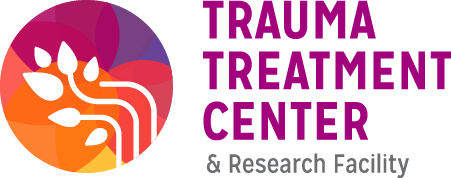Many of us are feeling the emotional effects of the COVID-19 pandemic. The number of people reporting symptoms of anxiety or low-grade post-traumatic stress disorder is skyrocketing.
Fortunately, not everyone needs professional help. If you feel like you just need a little extra support to get over this bump, there are many things you can do. Here are a few of our favorite stress relievers.
1. Spend Time with Friends and Family
Connect with friends and family in person, if you can. Depending on people’s health and vaccination status, you may have to be physically distant from them, but you can still connect from six feet apart, or outside.
Studies say that people with social connections are less likely to suffer from depression and anxiety.
2. Connect Through Video
Quarantined isolation has created a loneliness epidemic. Use video chat (Zoom, Google Meet, Skype, Facetime, etc.) to maintain social and emotional connections with friends and family.
3. Meditate
Regular mindfulness practice is a common habit of many high achievers. It is one of the most effective ways to reduce stress and combat anxiety and depression.
Starting is easy. There are lots of free apps for your smartphone and thousands of free mindfulness/meditation lessons on YouTube.
4. Deep Breathing
Deep breathing helps to calm your amygdala, your brain's fight or flight fear response center. Breathe in through your nose for three seconds, hold your breath for three seconds, and then slowly breathe out through your mouth for three seconds. Doing this five times slows your heart rate and calms your stress responses.
It is an easy reset button that requires nothing more than a working set of lungs. And the best part is you can hit that reset button anywhere and no one can tell.
5. Get Out! (Nature Therapy)
Many studies have shown that getting out and seeing greenery can elevate your mood. Take a half-hour walk outside at a local park. If you do it in the sun, your body produces vitamin D. The more regularly you can take your walks, the better you’ll feel.
You can up your exercise and nature quotient by taking a vigorous hike or rock climbing.
6. Let’s Get Physical (Exercise)
The benefits of exercise to relieve stress and improve mental health are strongest when done regularly. Consistent exercisers are less likely to experience anxiety than those who don’t. Regular exercise helps lower stress and anxiety by releasing endorphins (a feel-good brain chemical). It also boosts your confidence and self-image.
Choose any exercise:
Walk (outside or on the treadmill)
Gym
Take an exercise class in person or online
Dance
Strength training
Kayaking/Rafting
Running/Jogging/Wogging
Biking
Tennis
7. Yoga or Tai Chi
Yoga and its low-impact, easier-on-the-joints cousin Tai Chi have been singled out by many experts as one of the absolute best ways to relieve stress. Numerous peer-reviewed studies have substantiated these claims. The theory is that yoga lowers cortisol levels, blood pressure, and heart rate, and it increases gamma-aminobutyric acid (GABA) production, a neurotransmitter that elevates mood.
Yoga aims to align the mind and body through physical movement, meditation, light exercise, and controlled breathing. Hatha yoga is one of the most beginner-friendly forms of yoga, but if you find it too difficult, Tai Chi involves slow, graceful movements that, while most people do standing, can be done in a chair if mobility is an issue.
There are online yoga classes you can pay to join. YouTube has thousands of yoga class videos for free.
8. Write It Down
Create a worry journal in which you write out your anxious thoughts as a way of processing them.
You should also list the things you are grateful for each day. A gratitude journal has been shown to improve your mood.
9. Lifestyle Changes
Creating regular good mental health habits is how you can keep anxiety at bay.
Eat healthily. Bad diets lead to bad moods.
Learn to say no to obligations that will clog up your calendar or headspace.
Carve out a calming ritual at the beginning of the day like reading a book, meditating, drawing, knitting, or whatever you enjoy. This is your quiet time; guard it fiercely, even if it is only 15 minutes. Wake up earlier if you need to create it. As you ease into your working day, various productivity gurus suggest visualizing the day ahead to provide yourself with a mental roadmap. This can create a sense of calm.
Create an evening ritual that turns off the chattering “monkey mind.” Physically closing your computer, desk, or other work apparatus is a way to tell your brain that your mental business is closed for the day. Doing things like fun reading, meditating, or visualizing your happy place all help create that break.
Create good sleep hygiene habits to get as much sleep as you can. That usually means turning off screens a half-hour before sleep.
Reduce your caffeine and alcohol intake.
Eliminate tobacco and nicotine. Aside from the cancer and heart disease dangers, smoking and vaping increase anxiety over time.
Use social media to reach out to your friends via direct message.
Watch/read less news.
Watch/read more comedies.
Take a long bath.
If you have pets, play with them.
If you have kids, play with them.
Listen to music you enjoy.
Clean a space inside or outside for ten minutes. Studies have shown that the act of creating order out of chaos is calming. Also, the act of cleaning is physical and meditative.
Use aromatherapy to create scents you enjoy.
Unleash your creative side with art therapy. Whether you draw, paint, sculpt or use other mediums, the act of creating is meditative and relaxing.
10. Seek Mental Health Support
Sometimes speaking to a professional counselor can relieve more stress than walking the Bosque Trail. We have created a list of resources (LINK TK) so you can find the help you need.

